
What is growth hacking?
Growth hacking includes accelerated growth techniques that aim to get a big conversion rate at a low price very quickly.
In short, the growth hacking method is used by marketing teams for “guerrilla” style advertising over the short term, increasing brand exposure and the number of followers and buyers.
Growth hackers combine tactical marketing concepts with potential product characteristics for the product they are working with. The marketing strategies undertaken are different depending on the sector in which you are working and the characteristics of your target customers.
11 growth hacking techniques and strategies that you can apply NOW
Less buttons
In some case studies, it has been seen that eliminating the “remove product” and “empty your cart” buttons from the online shop and leaving just the “complete your purchase” button increased sales by up to 55%.
Other problematic buttons in ecommerce are the ones for sharing the page on social networks. Normally they are not used, but buyers see “shared 0 times” and they associate that with a low product quality. For Taloon, removing those buttons brought about an increase in conversion rate by 11.9%.
No mandatory registration
More and more online buyers and users don’t like filling out forms beforehand to be able to make a purchase or see how much shipping fees are going to be. Offering registration as something that is just optional can increase sales by up to 45% according to User Interface Engineering.
→ Related: More techniques to improve your sales conversion rate
Hide forms
A/B tests have proven that hiding a registration form until the user clicks on the “sign up” button increases registration by up to 60%.
Titles that hook
A/B testing on descriptive product titles has shown that adding attractive words like “at low prices” can be better for conversion than just a simple description like “sports shoes.”
Attractive product contents
We all are familiar with Airbnb, the website for renting short-term lodging. They soon found that the apartments with better images had more reservations and, therefore, they decided to start hiring professional photographers.
In ecommerce, product photos have the same impact, as well as all protect contents, which must adapt perfectly to any screen, be intuitive to navigate, and be complete and up to date. A Product Information Management (PIM) solution is the secret weapon of growth hackers when selling products.
→ A real case: How improving product information can increase sales
SEO analysis
Just like you can’t go to a wedding without wearing a tie, this is something quite typical but also quite functional. Analyze keyword trends in Google often in relationship with your subject matter and apply those trends to your online texts.
Be careful with ‘street talk’
Study well how your potential clients talk, in addition to their type and style of humor. In some cases, using colloquial language has garnered more attention and popularity, but in other case the use of bad words increases traffic but reduces sales and subscriptions.
Product scarcity = exclusivity
If you limit subscriptions to get your product or the possibility to access your service, consumers will be more curious and feel a greater sense of exclusivity.
Another strategy is that in order to buy your product or service, it could be necessary to receive an invitation from another customer.
An example of a service that used this strategy and was a real success is Dropbox. It offered its customers more space to store their documents in the cloud in exchange for recommending its tool to their contacts.
→ Write them down: More strategies for getting loyal customers
Contests
Organizing online competitions to raffle off a product in exchange for potential customer data or offering some type of discount through a mailing list or social networks is a quick way to increase your customer database.
Show up on specialized sites
There is nothing faster and more effective than going to where your customers are. Launch specialized ads and content on websites and forums that are in your niche and used by the potential customers you’re going after and contact this type of user and organization directly.
For example, Crazy Egg knew that its clients were probably web designers, so they invested in placing ads in CSS galleries and in uploading their designs to get more downloads and email addresses. Another strategy that they applied was that of giving away free accounts to technology blogs to generate attention, and they achieved just that with large platforms like TechCrunch and Mashable.
Event sponsorship
Unveiling your brand at specialized events is a great way to gain notoriety. As it is not always easy to get in and they require travel costs and conference speaker fees, an alternative is to become a sponsor of the event.
→ A bargain! How to take advantage of online discount sites to sell more
The best growth hacking tools to grow quickly
For automation: Zapier
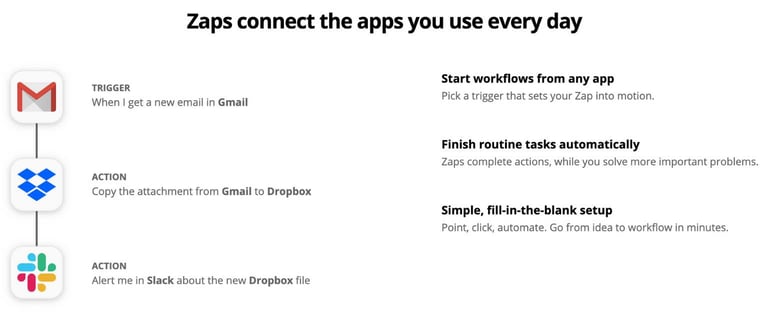
Zapier is a platform that allows you to connect multiple growth hacking, analysis, and marketing tools in order to automate your efforts. Automation through software is a great trend of the future for products as it allows to save on resources and increase productivity.
For SEO: GrowthBar
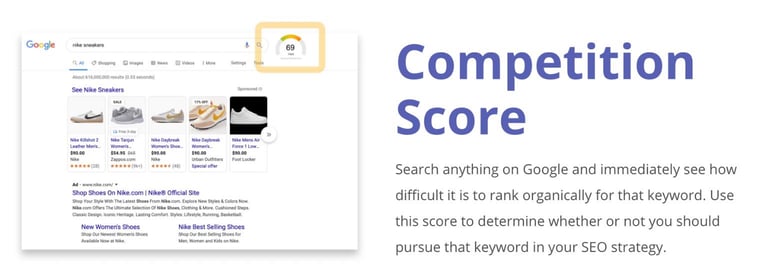
This Chrome browser extension allows you to analyze Google searches and discover the difficulty score for the keywords you are using, suggestions for alternatives, statistics, and your competition’s activity.
For website analysis: Hotjar
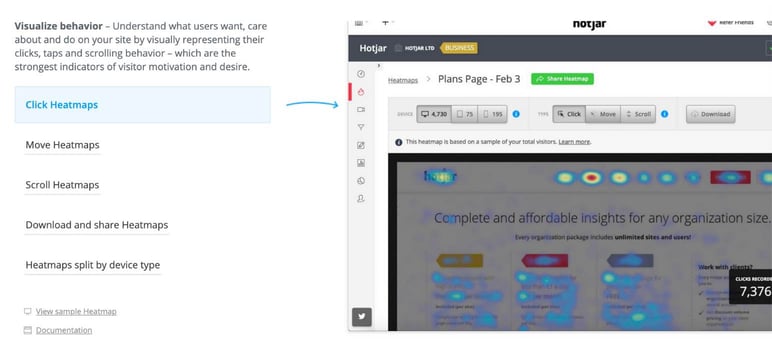
Heatmaps are all the rage because they are a tool that is easy to install and understand. Hotjar allows you to see, visually, where visitors click on your website, how far they read on each page, and how much time they spend on their visits.
For notifications: VWO
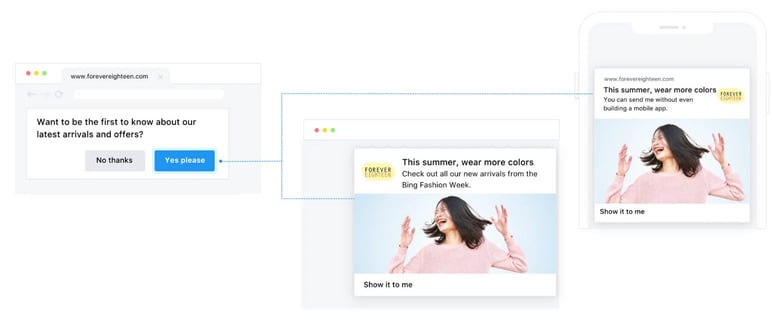
Push notifications are gaining popularity. This is an easy way to show notifications to users from a web browser or through messages like Facebook Messenger. You can use notifications to introduce new products and temporary discounts. What’s more, VWO allows you to identify and attract lost visitors back to your online shop or website.
For UX and UI design: UsabilityHub
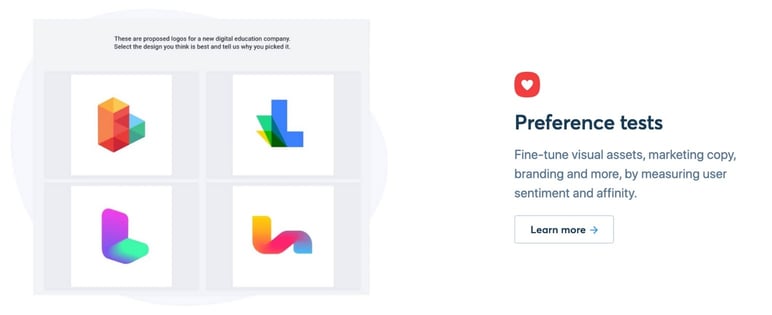
Doing design tests is key in growth hacking for ecommerce because many shoppers make decisions in just a few seconds. Look for professionals’ opinions about your interface and shopping experience by means of easy surveys like those found at UsabilityHub.
For tests: Optimizely

If you prefer to do tests with real customers, it is important to use A/B test with tools like Optimizely which allow you to identify the alternative that is providing a better conversion rate.
To get email addresses: Sumo
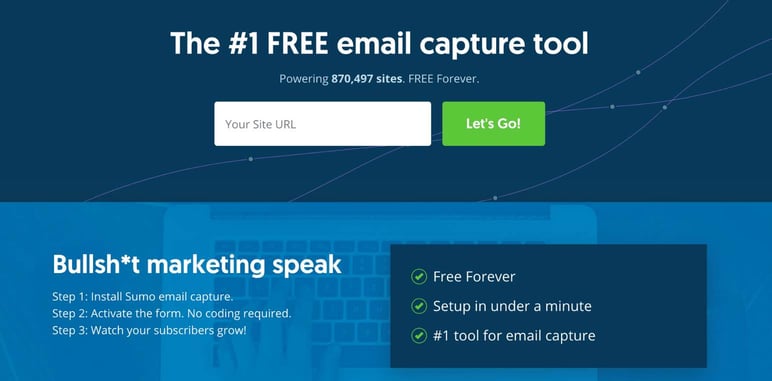
Perhaps you can’t get them all to be purchases from the very start, but you can get a few email addresses to start generating a good contact database. Placing banners on your website can attract more users, and tools like Sumo help you to include them without having to undertake complex programming.
To track emails: MixMax
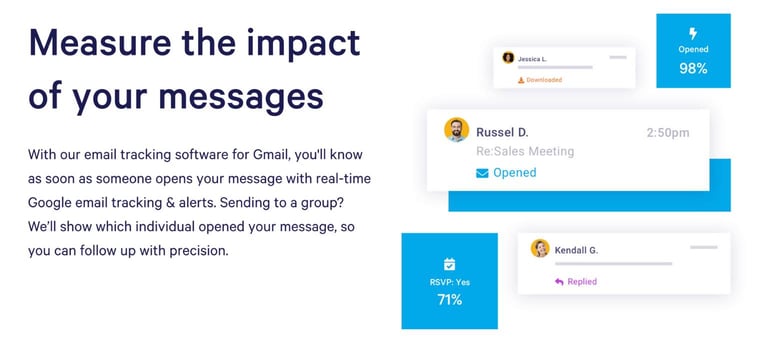
MixMax is an extension for Gmail that allows you to discover who has received your emails, who has opened them, if they have interacted with any links therein, and if they have forwarded the message to someone else. This knowledge is key to help your identify which users you should strengthen contact with and which users are inactive.
For onboarding: Userlane

Making things easy for users is the front door that leads to a loyal customer. With a tool like Userlane, creating customer onboarding based on easy-to-follow screens that are intuitive and clear will help you to better explain how to use your website or service to buyers.
Famous examples of growth hacking
Shortly after launching the app, the developers at Twitter found that people created an account but then stopped using it.
They undertook numerous tests with potential customers and came to the conclusion that if they offered users between 5 and 10 accounts to follow when they signed up for the service, it was more probable for service loyalty to increase. That is to say, if you quickly contribute with content of value, the buyer’s continuity online is ensured.
YouTube
From the time when you first connect to their platform, YouTube offers you a lot of easy ways to share a video on a social network, blog, or website.
Another strategy that they used was that of applying recommendations based on each piece of content. That’s the same technique that Spotify uses to keep up usage time on the app: the user has the option of continuously linking new contents based upon his or her interests.
In ecommerce, this growth hacking strategy can apply to the tactics of cross selling and upselling, which allow the buyer to discover products that are related or complementary to the one he/she is looking at.
Conclusion
Investing in growth hacking requires more ingenuity and creativity than resources; thus, it is a strategy that you should undoubtedly try.
If, of all the growth hacking methods highlighted, you – like us – trust in the impact of quality product contents that are both uniform and reliable over all your sales channels, then we invite you to try the Sales Layer PIM solution for free for 30 days. A full month for you to see how just a few changes can multiply your conversion rate and turn you into an (honest) ecommerce hacker.






.png?width=520&name=Blog%20Partner%20(3).png)

.png?width=520&name=Blog%20Partner%20(1).png)
